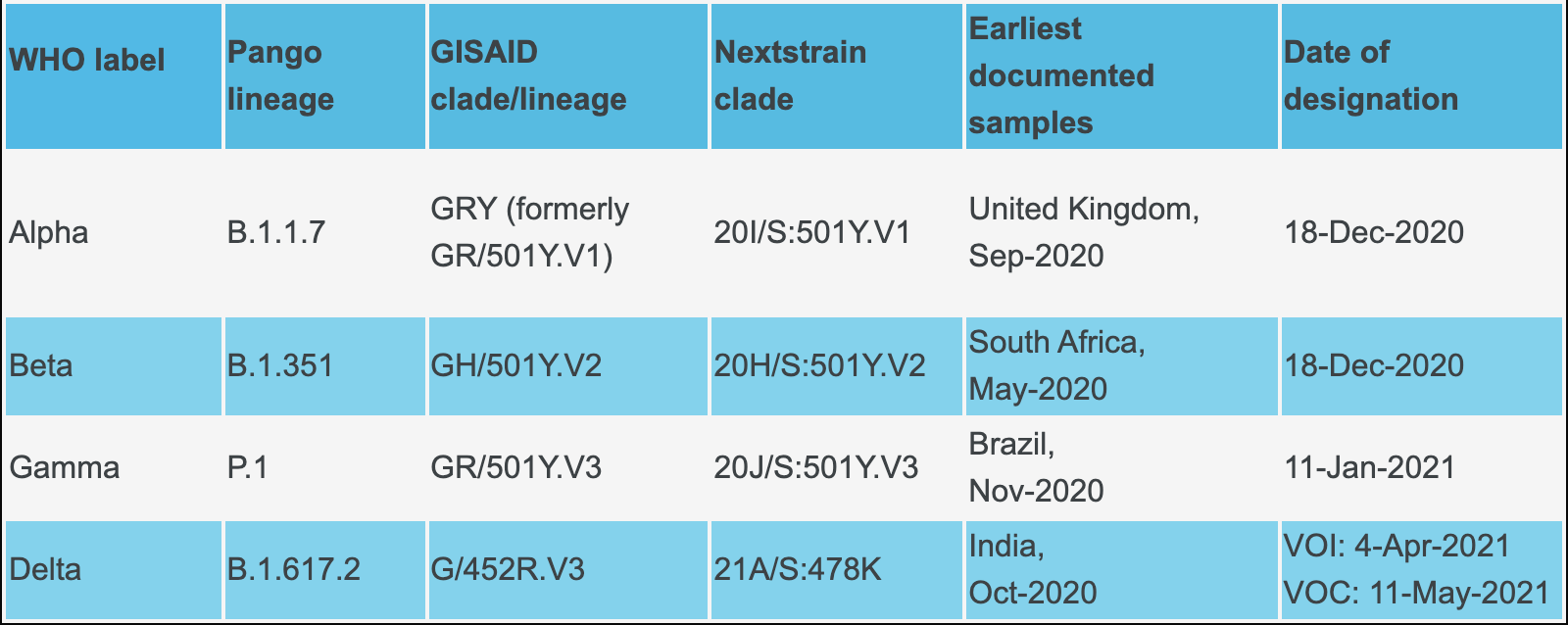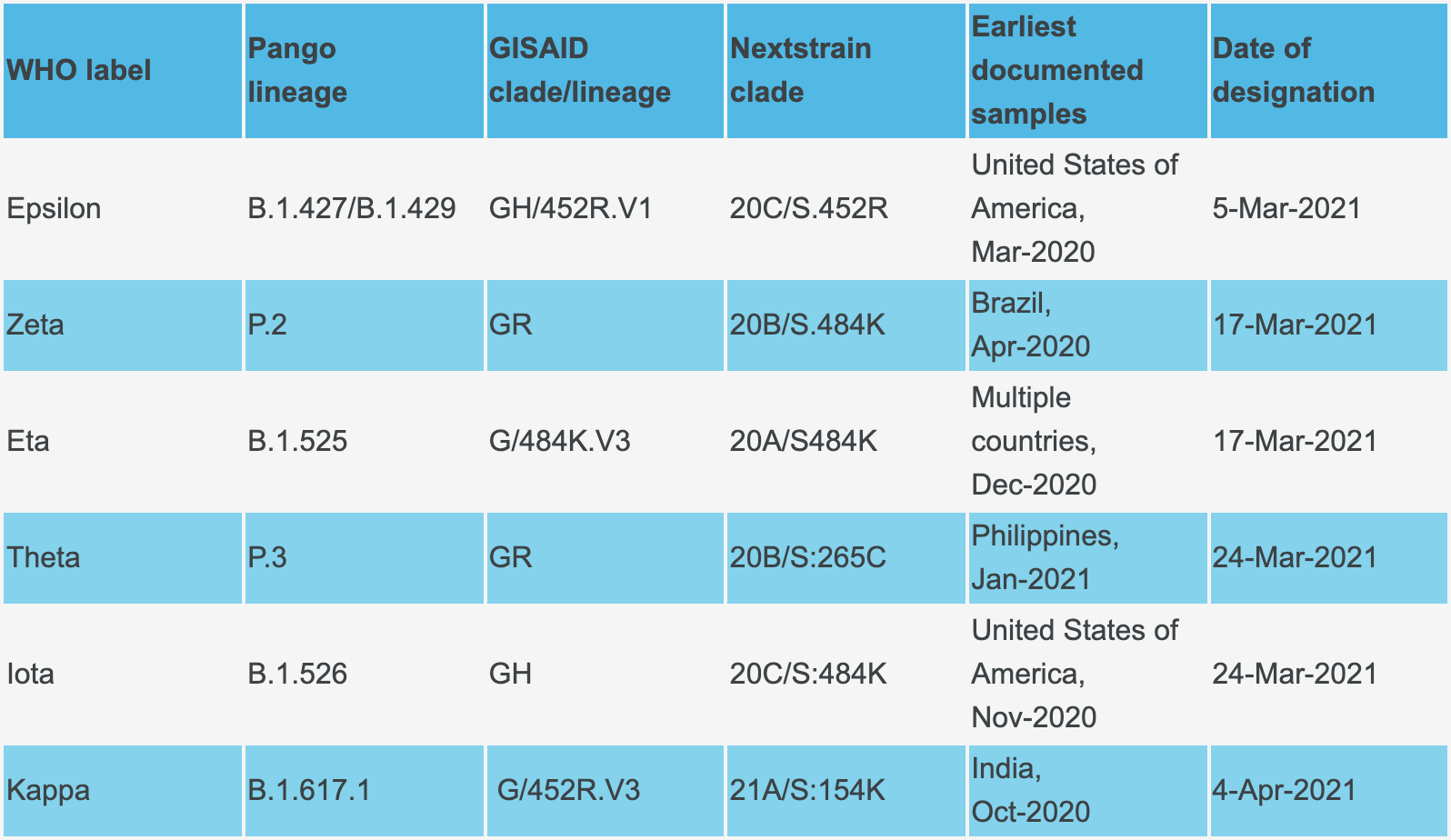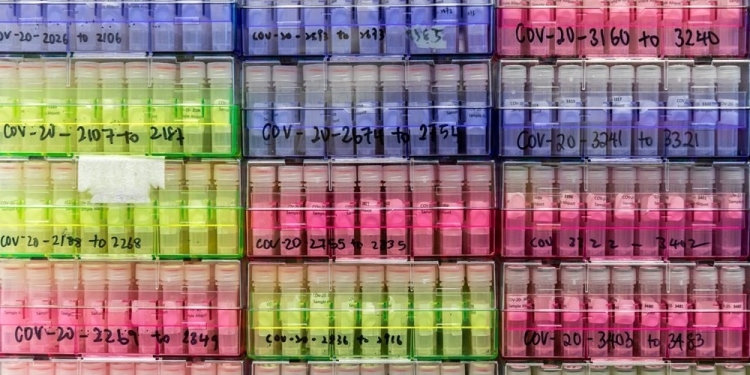The World Health Organization (WHO) has announced that they have named the COVID-19 variants after letters in the Greek alphabet. Their goal was to make them “easier to remember”.
WHO has posted a list of existing SARS-CoV-2 variants—all with Greek alphabet names under the “WHO label” section. For the Variants of Concern, they include the B.1.1.7 UK variant now called Alpha, the B1.351 South Africa variant called Beta, the P.1 Brazil variant called Gamma, and the B.1.617.2 India variant called Delta.
A Variant of Concern has been demonstrated to be associated with one or more of the changes at a degree of global public health significance. They include the increase in transmissibility, a change in clinical disease presentation, or a decrease in effectiveness of public health and social measures—amongst other things.

As for the Variants of Interest, these variants have either been identified to cause community transmission/multiple cases/clusters, has been detected in multiple countries, or assessed to be a Variant of Interest by WHO. They have been labelled Epsilon, Zeta, Eta, Theta, Iota and Kappa. WHO stresses, however, that this doesn’t mean that the scientific labels have been replaced.

“The labels do not replace existing scientific names, which convey important scientific information & will continue to be used in research. The naming system aims to prevent calling #COVID19 variants by the places where they are detected, which is stigmatising & discriminatory,” wrote WHO.
They were referring when COVID-19 was associated with being the “Chinese virus“—infamously said by ex-U.S. President Donald Trump. It has since been cited as contributing to a wave of hate crimes against Asian American and Pacific Islanders in America—as well as in the U.K.
Naming diseases after geographical locations has a long history that includes the Ebola virus (named after the Congolese river) and the Spanish Flu. However, history shouldn’t be the reason the world needs to keep doing it.
“No country should be stigmatised for detecting and reporting variants,” said WHO epidemiologist Maria Van Kerkhove.
Before its official naming in February 2020, COVID-19 has been referred to as “Wuhan pneumonia” or “Wuhan flu”. The name of the disease starts with “CO” and “VI” for “coronavirus”. The “D” stands for disease, while “19” indicates the year that it was first discovered.
[ SOURCE, IMAGE SOURCE ]








